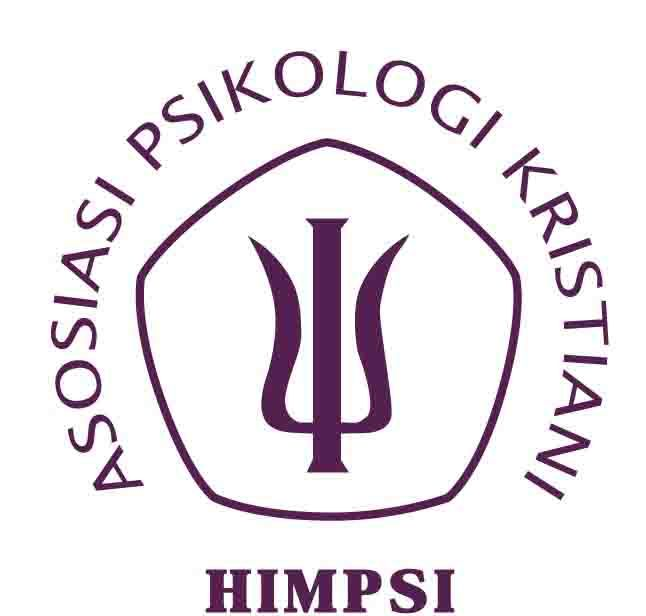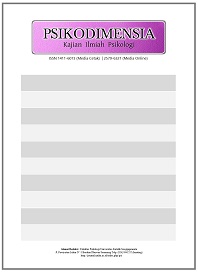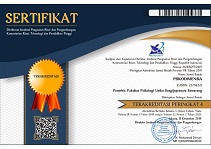PERILAKU GURU YANG MENDUKUNG KEMANDIRIAN ANAK
Abstract
Keywords
Full Text:
PDFReferences
Bee, H & Boyd, D. 2007. The developing child. Ed.11. Boston: Pearson Education, Inc.
Berns, RM. 2007. Child, family, school, community: Socialization and support. 7th Edition. Canada: Thompson Wardsworth.
Boyd, D. & Bee, H. 2009. Lifespan development. Fifth Ed. Pearson International Edtition. Boston: Allyn & Bacon.
Buckley, S. & Sacks, B. 2001. An overview of the developmental of children with down syndrome (5-11years). Down Syndrome Issues and Information. Down Syndrome Education Online. Doi:10.3104/9781903806036
Creswell, J.W. 2010. Research design: Pendekatan kualitatif, kuantitatif dan mixed. Edisi ketiga. Diterjemahkan dalam bahasa Indonesia oleh Achmad Fawaid. Yogyakarta: Pustaka Pelajar.
Endraswara, S. 2010. Etika hidup orang Jawa: Pedoman beretika dalam menjalani kehidupan sehari-hari. Penerbit Narasi Yogyakarta
De Hart, GB. Sroufe, LA. & Cooper, RG. 2004. Child development: Its nature and course. Fifth Ed. Mc Graw Hill Co.
Dewanggi, M., Hastuti, D., & Hernawati, N. 2012. Pengasuhan orangtua dan kemandirian anak usia 3-5 tahun berdasarkan gender di kampung adat Urug. Jurnal Ilmu Keluarga dan Konsumen. IPB Bogor. Januari, Vol. 5, No. 1. Hal 19-28. ISSN:1907-6037.
Haryanto, S. 2013. Dunia symbol orang Jawa. Penerbit Kepel Press Yogyarkarta.
Karvonen, M., Test, DW., Wood, WM., Browder, D. & Algozzine, B. 2004. Putting self-determination into Practice. Exceptional Children. Vol 71 (1), 23-41.
Katz, I., Kaplan, A. & Gueta, G. 2009. Students needs, teacher support, and motivation for doing homework: A cross sectional study. Journal of Experimental Education. 78 (2) hal 246-267. doi: 10.1080/00220970903292868
Keller, M.A & Goldberg, W.A. 2004. Co-sleeping: Help or hindrance for young childrens independence? Infant and Child Development. Vol. 13. Hal. 369-388. Doi: 10.1002/icd.365.
Kerig, P.K. & Wenar, C. 2006. Developmental Psychopathology: From Infancy through Adolescence. Fifth Ed. Mc Graw Hill, Boston.
Koentjaraningrat.1986. Pengantar ilmu antroplogi. Cetakan VI. Penerbit Aksara Baru Jakarta
Koentjaraningrat, 1981. Beberapa pokok antropologi sosial. Cet.V. Penerbit PT Dian Rakyat.
Koh, J.H.L. & Frick, T.W. 2010. Implementing autonomy support: Insight from a Montessori classroom. International Journal of education. Vol. 2., No. 2: E3. Hal 1-16.
Lamme, LL., Fu, D., Johnson, & J., Savage, D. 2002. Helping Kindergarten Writers Move Toward Independence. Early Children Education Journal, Vol. 30 (2), hal 73-79.
Lifshitz, H., Klein, P.S. & Cohen, S.F. 2010. Effects of MISC intervention on cognition, autonomy and behavioral functioning of adult consumers with severe intelletual disability. Research in Developmental Disabilities. Vol 31, 881-894.
Marsh, L., Caples, M., Dalton, C. & Drummond, E. 2010. Management of Constipation. Learning Disability Practice. Vol 13 (4), 26-28.
Miller, S.M. & Chan, F. 2008. Predictor of life satisfaction in individuals with intellectual disabilities. Journal of Intellectual Disability Research. Vol. 52, part 12, hal 1039-1047. Doi:10.1111/j.1365-2788.2008.01106.x
Murtini. 2008. Penyesuaian Diri Siswa Sekolah dasar ditinjau dari faktor eksternal dan internal. Disertasi (tidak diterbitkan). Universitas Gadjah Mada Yogyakarta.
Nota, L., Ferrari, L., Soresi, S. & Wehmeyer, M. 2007. Self-Determination, Social Abilities and The Quality of Life of People with Intellectual Disability. Journal of Intellectual Disability Research. Vol. 51, part.18. hal 850-865. Doi: 10.1111/j.1365-2788.2006.00939.x
Raeff, C. 2010. Independence and Interdependence in Childrens Developmental Experiences. Journal Compilation, Society for Research in Child Development. Child Development Perspective. Vol. 4 (1), hal 31-36.
Schunk, DH. 2008. Learning Theories. An Educational Perspective. Ed.5. New Jersey: Pearson Education Inc.
Setiono, K. 2011. Psikologi indigenous dan indigenisasi sebagai acuan penelitian dan terapan dalam psikologi perkembangan di Indonesia. Proceeding Temu Ilmiah Nasional IPPI. Fakultas Psikologi Universitas tarumanegara Jakarta. ISBN: 978-602-19176-1-9. Halaman 1-7.
Shogren, K.A., Wehmeyer, M.L., Palmer, S.B., Soukup, J.H., Little, T.D., Garner, N. & Lawrence, M. 2007. Examining Individual and Ecological Predictors of the Self-Determination of Students with Disabilities. Exceptional Children. Vol 73 (4), 488-509.
Suparmi. 2015. Bentuk pengasuhan yang mendukung kemandirian anak. Proceeding. Jilid 1. Seminar Nasional 2015 Fakultas Psikologi Universitas Muhammadiyah Surakarta. ISBN: 978-602-71716-2-6
Vierling, KK., Standage, M. & Treasure, DC. 2007. Predicting attitudes and physical activity in an at risk minority youth sample: A test of self-determination theory. Psychology of Sport and Exercise, 8, 795-817. DOI: 10.1016/j.psychsport.2006.12.006.
DOI: https://doi.org/10.24167/psiko.v15i1.593
Print ISSN : 1411-6073 | online ISSN : 2579-6321 View My Stats

This work is licensed under a Creative Commons Attribution 4.0 International License.




















